“Brazilian Jiu-Jitsu should be on the front end of police reform.” – Major Jake King, Marietta Police Department (MPD)
The mishap of George Floyd’s death in May 2020 while in police custody, the immediate firing of the four officers, and the subsequent trial of the officers for second degree, or aiding and abetting, murder stimulated lawmakers to propose police reform laws in over half of the 50 states in the USA.
It followed a similar, similarly publicized tragedy in 2014 when Eric Garner died in a police chokehold.
Unfortunately, these tragedies memorialize the common use of techniques intended to cut blood flow in the carotid artery resulting in unconsciousness.
There are two main types: the chokehold, which compresses the airway by clamping the front of the neck, and the stranglehold, which restricts blood/oxygen flow to the brain by clamping the sides of the neck.
However, the astonishing fact is that several of the largest police departments in the country had policies or regulations that banned chokeholds as early as 1982, when Los Angeles banned the “bar-arm chokehold,” in 1993 when New York City prohibited chokeholds, and in 2012 when Chicago did likewise.
So, it begs the question,
“Why do people being arrested continue to die due to chokeholds? Is it due to their pre-existing physical condition?
Is it because officers misinterpret their own rules? Or is it because officers do not receive proper martial arts training?”
At first glance, it appears inarguable that police officers must learn self-defense because they are required to subdue a criminal suspect without harming them.
It is reasonable to conclude that grappling, rather than hitting, a suspect, is a less damaging approach towards non-compliant suspects.
However, mixed martial arts in a cage, where two opponents respect each other, comply with the rules, and are being both refereed and filmed, is not 100% transferable in the chaos of the street where an officer may be faced with both overt or concealed weapons, multiple suspects, and combative spectators.
In George Floyd’s case, four officers who had received standard police academy training swarmed and handcuffed him, and one then kneeled on his neck for at least eight minutes to slow his breathing.
In comparison, a professional martial artist could have done so within a minute.
Would the public outcry, legal outcome, and proposed reforms be different?
Let’s explore this by looking at the laws.
There are three main categories:
- Use of force
- Duty for officers to intervene, report, or render medical aid instances of police misconduct
- Law enforcement misconduct reporting and decertification
Using the State of Michigan as an example, it has 11 pending police reform bills working their way through legislation.
One of these bills, authored by Republican Ryan Berman, District 39, appears to be part of a proposed plan to support police departments in Michigan by offering tuition assistance to attend policy academies, signing bonuses and giving police and first responders access to mental health services.
His HB 4525 would require, among other things, all Michigan police cadets to receive (at least) their blue belt in Brazilian Jiu-Jitsu from a certified instructor.
Why?
Berman, who is an NRA safety instructor, reserve deputy during law school, and a BJJ practitioner, believes police departments (not all) need better methods to control suspects.
In other words, a typical police officer is not equipped with the proper training for handling a resisting suspect, in part because they only receive four hours or less of hand to hand, defensive training per year.
And because the ethos of BJJ is “control that leads to submission,” Berman believes it will give officers the confidence and skills to deal with resisting suspects.
He believes this specialized training will reduce instances involving excessive and unnecessary force, increase officer safety, and lower department liability.
“They won’t have to punch someone 15 times,” says Ryan Berman.
Berman’s platform appears to be supported by the Marietta Police Department (MPD), State of Georgia, implementation, in 2019, of five months of weekly Brazilian Jiu-Jitsu (BJJ) training sessions for their cadets.
The results supported its extension to all in-service officers!
Eighteen months after BJJ training, the number of officers injured in fights decreased by 48%, saving the department $67,000 in worker’s comp injuries.
These officers learned how to apply, as well as defend chokes, and better understand when/where they should use them.
The number of taser-related incidents decreased because the BJJ-trained officers decreased their reliance on their weapons as much.
According to MPD’s Major Jake King, if his officers were asked to testify in court why they choked their suspect and used deadly force, they would be able to give a detailed answer based on practical hand-to-hand experience.
In translation, they have hundreds of hours of training under their belt, which increases their odds of making the appropriate decision.
These police officers have a better understanding of why, when, and how they should apply the range of force— which can be the difference between life, death, and unnecessary tragedy.
Remember the adage; most street confrontations end on the ground.
Street fights typically follow a particular pattern.
They tend to start with verbal confrontations that escalate upwards into physical ones.
If weapons and dangerous objects are not involved, attacks used during a physical confrontation typically consist of punches, takedowns, and specific holds/chokes.
Suppose an officer does not have specialized training in dealing with an assailant who implements the above criteria.
In that case, they most likely will resort to their weapons or use of excessive force because they weren’t properly trained.
And during stressful, high-intensity situations we usually fall back to the level of our training.
In the cases of Eric Gardner and George Floyd, the events that transpired might have been avoided had the officers been more skillful and knowledgeable in the science and art of “control that leads to submission.”
If they knew how to make their adversaries “carry” their weight without severely maiming and killing them, these tragedies could have been avoided.
There are many subtle nuances that non-practitioners cannot see, including how much force or pressure one needs to exert to safely subdue a resisting human being— Emphasis on safely.
Perhaps, Brazilian Jiu-Jitsu will be the catalyst that ushers in a new era of police reform.
Ultimately, fixing the weaknesses that are evident in policing today.
There’s a classic saying, “you know what you know, you know what you don’t know, but you don’t know what you don’t know.”
In the case of physical confrontation, if a police officer does not have dozens or hundreds of hours on the mat— chances are — they don’t know how to properly deal with the physicality of these situations.
If you want to learn more click here for Major Jake King’s full interview about his department’s success.





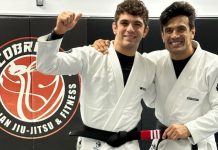
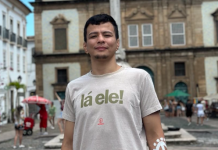
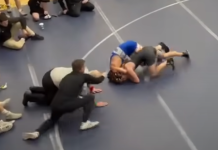
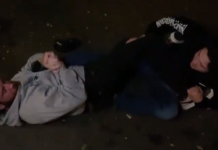

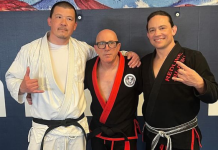
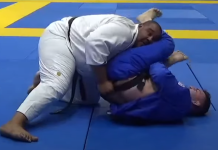



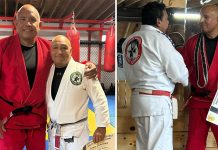
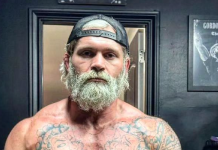






Much applause for this articulate and enlightening article!!!
I did not know that Marietta, Georgia substantiated the cost benefit of investing in BJJ training of LEOs! I hope the jiu-jitsu community supports Michigan Berman’s HB 4525 to help prevent more tragedies on both sides of the law.